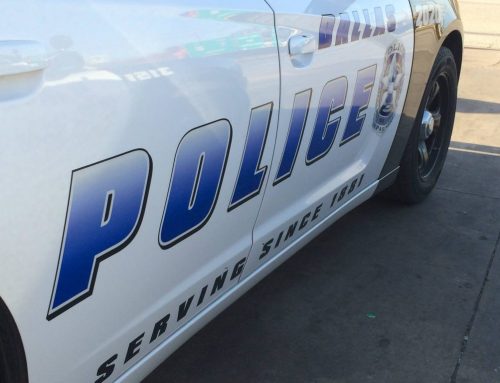Talk of Woodrow Wilson High School and its feeder schools seceding, in a sense, from Dallas ISD has made its way through neighborhood education circles in recent days.
Dallas ISD Trustee Mike Morath addressed the topic with both the Woodrow Wilson High School Community Foundation and the Woodrow Wilson Community Council. He told the council that people have asked him for two and a half years, since he was elected, whether we could “divorce” from Dallas ISD.
“The short answer is, legally, kinda,” Morath told the gathering of mostly parents and educators.
What Morath described wouldn’t be a secession or divorce so much as an amicable separation in which Dallas ISD and a new educational entity still would be joined, but the new entity could operate mostly independently. What is “theoretically possible under state law,” he said, is a private nonprofit that would hire its own superintendent and be run by a board of directors, but would sign a contract with Dallas ISD that would require certain academic achievements from the entity, among other things. Morath cited Austin ISD and Spring Branch ISD in Houston as places in Texas where something along these lines has happened.
From the way Morath described it, the entity would operate almost as a charter district, rather than simply a charter school. He emphasized that it would be difficult and costly — both to to make the idea a reality and then to run the entity — so at this point, he’s bringing up the topic as a way to gauge whether the neighborhood even wants to explore the idea. Morath noted that unless the schools’ educators — both principals and teachers — are on board, the idea isn’t worth exploring. Parents and neighbors in the room expressed that they at least are interested in exploration, but the educators were hesitant, saying they need more time to think and discuss.
Someone asked Morath, who sold his company to devote his time to Dallas ISD as a full-time job, whether he thinks this would be the answer to public education’s problems. He responded that because one of the problems with public education is governance, this could be an answer.
“If the autonomy allows us to get a better education for kids, then it’s worth it,” Morath said.
Other discussions are sprouting from a new White Rock ISD Facebook page created by former state representative Allen Vaught. What Vaught is proposing, however, is full detachment from Dallas ISD. The single post on the Facebook page describes a provision in the state’s education code that “sets forth the procedure for an area to form its own school district.”
Vaught describes the page as his way of “planting a flag people can gather around.” If over time, 2,000 or more people “like” the page, he would consider that an impetus to hold a public meeting.
“A lot of people feel like it’s just hopeless — there’s no local control of our local schools,” Vaught says. More control would give neighbors the ability to decide things such as which teachers to hire or how many students should be in a classroom, he says.
During Vaught’s four years as a state representative, he says he lost “countless constituents” living in DISD to Richardson, Plano, Highland Park and other suburban school districts, as well as to private schools. Then and now, even though he hasn’t been in office since 2010, people have come to him frustrated with DISD and asking how to enact change. (Vaught’s own children attend St. John’s Episcopal School, though his family lives in the Robert E. Lee Elementary School attendance boundary.)
Vaught says he and Morath “are on the same sheet of music, just heading down different paths.” Like Morath, however, Vaught emphasizes that any effort to separate would be “an uphill battle.” Even if the end result isn’t full detachment, he hopes a discussion would yield some sort of change.
“We’ve got to have more control of our schools,” Vaught says.






